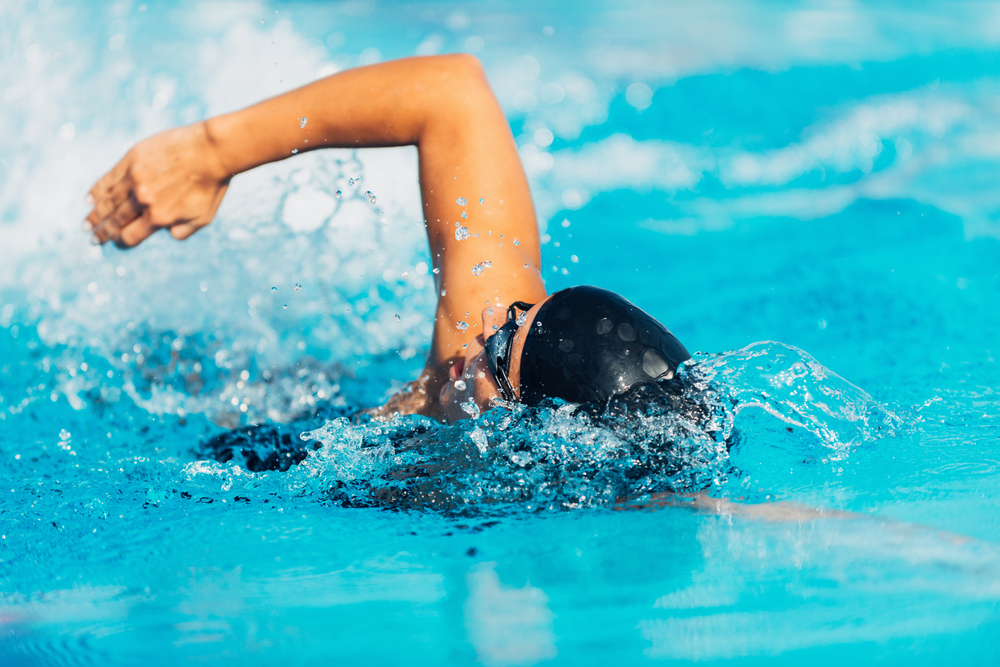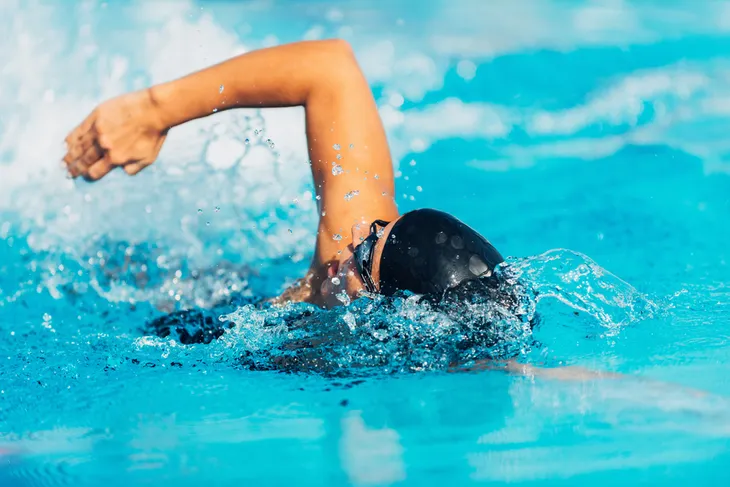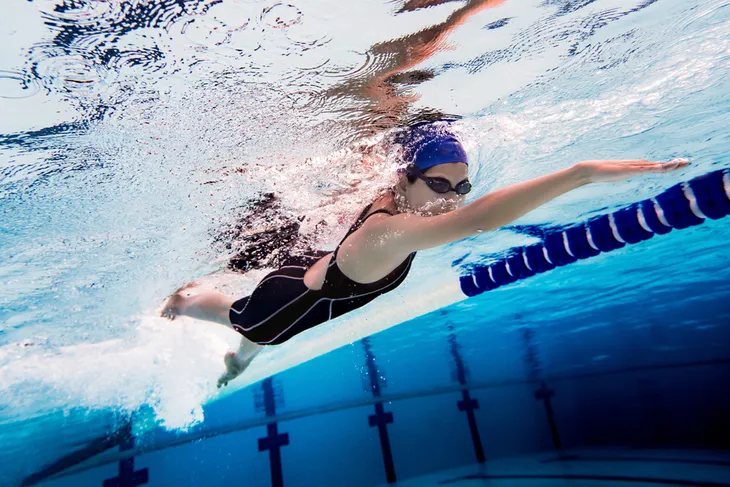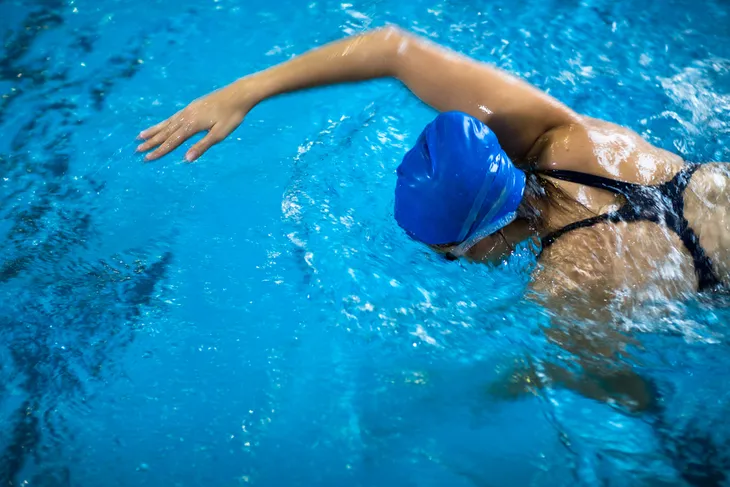Many people automatically think of jogging or hitting the gym when it comes to improving their physical health, but they are not always the best option, especially for those who are prone to injuries. Immersing yourself in water can be just as (if not more) effective.
You don’t have to have a fancy backyard pool or live by the ocean to get the benefits of swimming. There are many recreational centers that offer low-cost swimming memberships or pay-as-you-go options. Here are seven reasons to choose swimming as a way to get fit…
1. Good for Your Heart
Active.com claims that swimming “provides unparalleled cardiovascular conditioning,” but you have to keep up a regular routine in the pool (with proper techniques) to reap the benefits.
Your cardiovascular system encompasses your heart as well as your blood vessels, and a healthy system can help lower the risk of related diseases and even heart attacks. High blood pressure can also be addressed by regular trips to the pool.
2. Good Part of a Cross-Training Program
Hitting the pool doesn’t mean you need to give up other forms of exercise. In fact, swimming can be a vital component of cross training that balances out the impact on your bones and muscles from sports, running or weightlifting, notes Active.com.
“By creating a balanced workout routine, athletes avoid injury by allowing their body time to heal, while not forgoing daily training sessions,” explains the source. So if you’re feeling a bit achy from the other forms of exercise, the pool is a great place to get a good lower-impact workout while also still getting great health benefits.
3. Full-Body Workout
Unlike some forms of weight training, which target certain muscle groups, swimming can challenge your entire body (in a friendly way) during a visit to the pool, notes Swimming.org. “Swimming uses all the muscles in the body so whether you swim a gentle breaststroke or hammer butterfly,” notes the source.
While water allows for more fluidity of motion, it doesn’t mean you’re not getting a proper workout. In fact, according to the source, 30-minutes of activity in a pool is worth 45-minutes of the same activity on land.
4. Drowns Depression
PsychCentral.com reminds us that swimming is not only good for your body, but also your mind. A blog post from the source notes that swimming is one of the exercises that “stimulates brain chemicals that foster the growth of nerve cells,” as well as positively influencing serotonin, a mood-related neurotransmitter.
The author of the post explains that swimming 3,000 meters (close to 10,000-feet) can pull them out of a “depressive cycle” for short periods of time more effectively than running. It’s also effective for quieting anxiety and promoting general de-stressing. “Besides possible biochemical changes in the brain, swimming requires the alternating stretch and relaxation of skeletal muscles,” adds PsychCentral.com.
5. Aids in Meditation
Continuing on the mental health theme, swimming can also help you quiet your mind and stay in the moment, which are key components of meditation. Being in the water allows you to tune out the outside noise that’s sometimes associated with high-impact aerobics class, suggests Phychologies.co.uk.
In a way, swimming can then be regarded as a “solo” activity, even if you have people swimming in the lanes next to you. “It’s just me and my mind moving through the water, which is very liberating, and because swimming is so rhythmical, it’s like doing yoga in water,” explains the author of the post.
6. Helps Prevent Overheating
The trouble with some forms of exercise, like training for a marathon in the summer, is that if you don’t properly hydrate then you could end up with big problems (not to mention with a bad sunburn if you don’t use the proper sunscreen).
Swimming indoors means you won’t get all sweaty as the water is constantly cooling you down. However, keep in mind that you can still get heat stroke if you’re swimming outside in the hot sun (kids are especially at risk), so take the proper precautions as suggested by HealthyChildren.org.
7. Boosts Metabolism
Swimming is a great way to boost your metabolism, which can make you feel more energized after a rigorous workout in the pool. “No other workout burns calories, boosts metabolism, and firms every muscle in your body (without putting stress on your joints) better than a swimming workout,” boldly states Women’s Health magazine.
The source notes that an “easy swim” can burn 500-calories per hour, while adding more hustle can burn up to 700-calories per hour. While you’re activating your fat-trimming mechanisms, you can also build lean muscle, it adds. However, don’t overdo it and use a variety of swimming strokes from backstroke to breaststroke for best results, according to the magazine.










